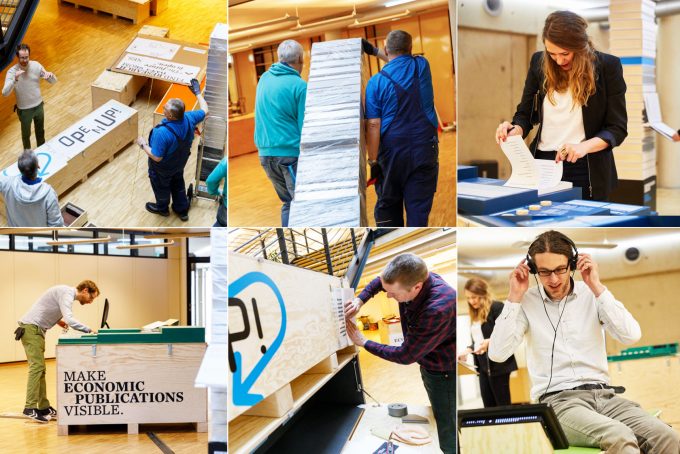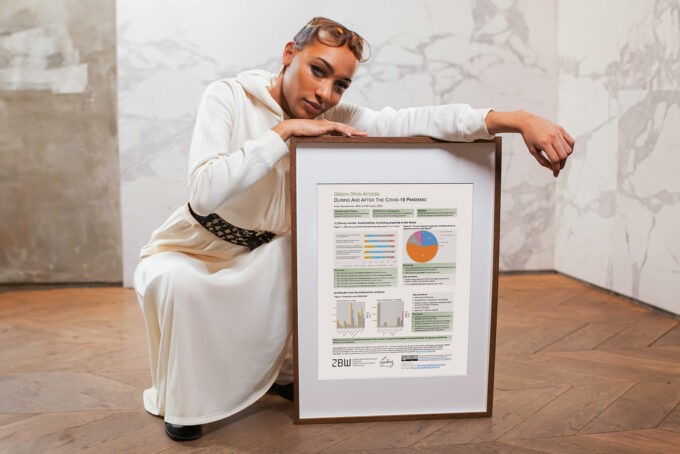
Happy Birthday, MediaTalk! Our Must-read List from 11 Years of Blogging
It's our birthday! On 22.02.2022, the blog ZBW MediaTalk will be 11 years old. Reason enough to look deep into the blogpost treasure chest and compile a list of articles worth reading from 11 years of library, innovation and open science blog.
The categories in our birthday article range from factual such as Open Science or Social Web to the most curious/weirdest contributions, the (still!) most requested added-value blogposts, a few ZBW milestones and MediaTalk Magic Moments. Travel back through time with us and be amazed at which posts are more relevant today than ever.
Please note: Until 2017, mainly German-language blogposts appeared on ZBW MediaTalk. That’s why this post contains many weblinks to purely German articles. We have marked them with “(German)”. If you are particularly interested in a translation of an older blogpost, please let us know (). Maybe it’s worth updating it in that case, too?!
MediaTalk-Magic-Moments
Blog birth: Blog birth: Back then, on 22 February 2011, on a presumably grey February morning in Hamburg, the WordPress blog was launched with two contributions: World Wide Science – How Scientists Work in the Internet (2011, German) and the inaugural lecture of ZBW Director Klaus Tochtermann: “Future Internet – Opportunities and Risks for the Media Industry” – mit Audio (2011, German). Parallel to the blog, the Facebook account and the Twitter account existed from the beginning. In the beginning, however, MediaTalk looked a bit different
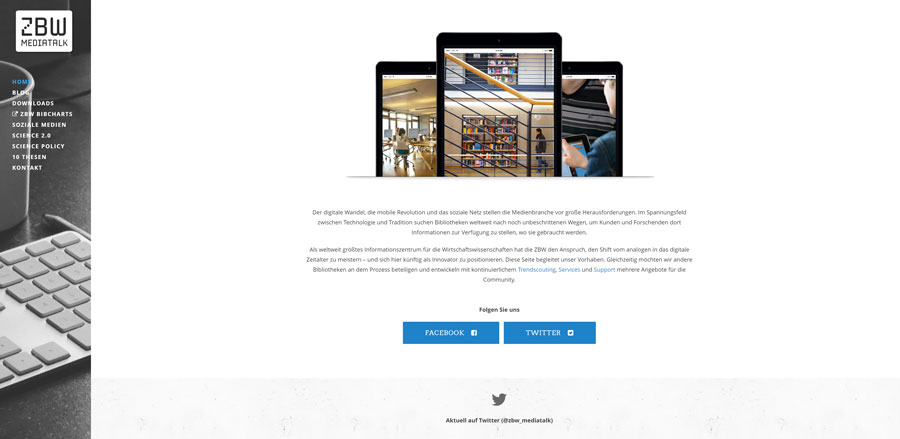
MediaTalk 14.05.2016
In 2016, ZBW MediaTalk editor Birgit Fingerle published the trends for the coming year for the first time: 7 Trends That Will be on the Agenda in 2016 (2016, German). Since then, this column has been one of the most popular contributions on ZBW MediaTalk every year. Do you already know the trends for 2022? Special goody: In an insider’s look behind the scenes, Birgit revealed 2016 in a three-part blog post series how to (1) find and recognise trend; (2) organise trends and (3) turn trends into innovations (all 2016, German). Must Read!
MediaTalk goes international! From 2017 onwards, blogposts on MediaTalk are also be published in English. First English blogpost in this context: GO-FAIR: A Member States-Up strategy for the EOSC implementation. Accompanying this, the team started the weekly English newsletter, which briefly addresses current developments, presents interesting studies and reports and announces some relevant dates.
ZBW MediaTalk event calendar: In January 2017, the first blog post with event tips for the coming year (German) was published and was so well received that it became an annual MediaTalk institution. In May 2019, we launched our events calendar with an ever-growing number of interesting events for digital infrastructure workers and Open Science enthusiasts. By the way, have you already checked out which events you shouldn’t miss in 2022?
Open Science – all in

In 2012, the Leibniz Research Network Science 2.0 was launched on the initiative of the ZBW – Leibniz Information Centre for Economics (German).
In 2014, we announced the first Science 2.0 Conference by the Leibniz Research Network Science 2.0. This year, the 9th Open Science Conference, as it is called now, will take place from 8-10 March. By the way, you can still register for it In 2015, the conference was joined by the Barcamp Science 2.0. This year’s Barcamp Open Science will take place on 7 March.
What is it like to live Open Science consistently? We asked Christian Heise about his experiences and insights when writing his open PhD thesis (2017).
Generation R: Forming Open Scientists and Shaping Science Systems (2018). The aim of Generation R (R = Researcher) is to help researchers take advantage of the changes towards Open Science and to shape the future of the new Open Science systems and tools.
Did you know? Open Access preprints are cited and shared more often (2019).
How can Open Peer Review be implemented? Where else could Open Peer Review be applied and how could it be fostered in the future? Tony Ross-Hellauer, one of the authors of the “Guidelines for Open Peer Review Implementation“(2019), talked to us about the core elements of Open Peer Review and his recommendations.
Research Data Management: Toolbox for Successful Institutional Services (2019). The BMBF-funded project FDMentor developed guidelines and solutions for institutional research data management.
A classic in the field of Open Science: How can new indicators be found that make sense of Open Science and Open Innovation (2019)? Established indicators for research and innovation processes have so far inadequately captured Open Science and Open Innovation. As a result, their opportunities and risks often remain in the fog. A discussion paper therefore made proposals for the expansion of existing indicators and the development of new ones. Still worth reading!
Wikidata and Open Science: A Model for Open Data Work (2021)?
Tracking Science (2022): A modern saying goes: If you don’t pay for the product, you are the product. But how can libraries help to avoid tracking in science and thus protect the data of researchers and, in an idealistic sense, scientific freedom? In this interview, Felix Reda showed starting points and pitfalls.
The Weirdest Articles
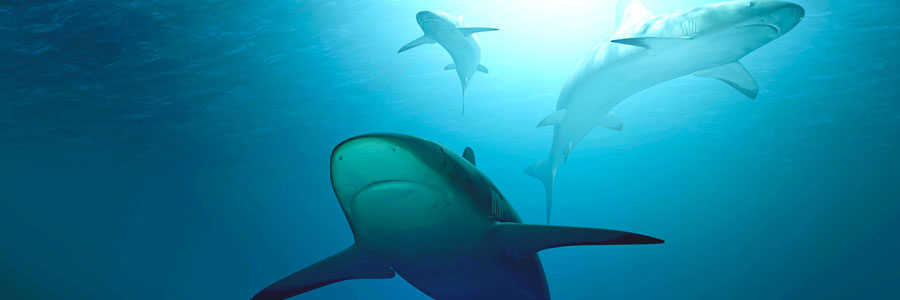
The library, your online personal trainer (2015, German) ? You have probably never asked yourself this question, even though it no longer seems so far-fetched during a worldwide pandemic. Background: Personal training has been around for a long time – by 2015, some enterprising trainers had discovered it for themselves online. Whether it’s about losing weight or getting fitter, online personal training is supposed to help people achieve their goals. A model for libraries?
“Matchmaking” as a field of activity? „Libraries and the Tinderisation (2015, German). Background: Apps like Tinder show how contact seekers can be brought together quickly. Even outside the dating world, providers use the principle for themselves and simply bring together people with matching interests, for example so that they can study together. Should libraries respond to the desire for “quick contacts”?
As a robot in the USA: A somewhat different conference participation (2016, German): How can you attend an on-site conference if you don’t want to travel long distances and incur large costs? Telepresence robots make it possible.
How do Predatory Journals work and how does it work to place a publication here? A group of researchers from the ZBW tested this on their own and reported on their experiences: self-experiment in fake science: The tricks of the predatory journals (2018).
Social Web

Photos squared: Libraries on Instagram (2015, German). Apart from the fact that photos have been joined by a lot of video content on Instagram over the years, this blog post has lost none of its relevance, as Ned Potter recently wrote: Instagram is the most used social media platform, and this is of great importance for libraries (2022).
More topical than ever: Digital Detox – mobile phone fasting by app, at camp or in the library? (2015, German). Background: Sometimes the noise becomes too much. Notifications from social networks, round-the-clock availability; the increasing digitalisation of our lives also has its downsides. Distraction-free, concentrated work is becoming a scarce commodity for many. Digital “withdrawal” promised a remedy – and possibly built on a core competence of libraries.
Emojis have become an integral part of communication for many mobile users. The widespread use of messaging apps also made their use in customer contact possible. Resourceful providers showed how emojis have become part of customer service (2017, German).
Benefit from Twitter as a Learning Tool: Learning in Social Networks (2017). The social network Twitter can be used for a wide variety of purposes – including as an educational platform. We presented a selection of possible approaches for learning with Twitter.
Scientific Tweets: Why less is more and when a tweet is perceived as scientific (2021).
Podcasts have moved us more often: Tips for Open Science Podcasts (2021); Podcasts and Libraries: Let’s Listen (2015, German) and Podcasts: Potential for Science and Continuing Education (2018). In 2020, the ZBW itself launched an Open Science podcast: The Future is Open Science (German). Missing a podcast? Send us an email to .
Brave New Library World

Libraries in the Shareconomy: Central Player or Outsider (2014, German)? Booksharing, carsharing, carpooling centres, co-housing centres, clothes swapping circles, toy swapping circles or the sharing of surplus food: the shareconomy seems to be booming. But why are libraries rarely mentioned in this context? And what role could the “sharing” trend play for them?
Visualisations Revolutionise Research: hitchhiking through literature (2015, German). Visualisations can significantly accelerate the entry into new knowledge domains. Automation options have since simplified their creation. Librarians can play an important role in this!
Robots can already solve individual tasks very well. There are reports of new robot developments every day. What can robots do today and is it conceivable that they will make even greater inroads into the “library” world of work? Robots: Our new colleagues (2016, German)?
Gamification in Libraries (2016, German)? The permeation of various areas of life with game elements has been observed for years and will probably continue to increase in the working world. What potential does this development offer for academic libraries? In 2022, there are already a few well-functioning concepts for research data in this respect: Horror Research Data Management: 4 Best Practice Examples for Successful Gamifications (2022).
Since 2014, library-related topics have been discussed monthly on Twitter under the hashtag #BIBchatDE. The @bibchatde team explained what it was all about: Bibchat – the Twitter Chat on Libraries (2017).
How the Library Becomes a Hub for Open Innovation and Science (2018). Merging Open Science and Open Innovation more strongly and thus setting new impulses was the focus of the Initiative for Open Science and Innovation of the Stifterverband (a donor´s association for the German science). A discussion paper published as a result contained initial recommendations for action. It considered the establishment of Open Innovation Hubs and the role of libraries.
What is the most efficient way to improve library services? And how can we make our users happiest? User experience in libraries is a multifaceted topic on which we started a whole series of contributions in 2020. Starting with the best methods and tools for beginners (2020), it has since become an international UX interview series with many best practices and interview guests from Estonia, Sweden, France and the Netherlands, for example.
Wikimedia 2030: With Libraries to the World’s Largest Knowledge Infrastructure (2020). The international Wikimedia movement, known primarily for Wikipedia, has set out for the year 2030 and defined strategies, values and goals. Nicole Ebber and Holger Plickert from Wikimedia Germany answered some questions about the transformation, how Wikimedia wants to become the largest knowledge infrastructure in the world and what connections they see with libraries.
Corona: The impact of the pandemic was a gigantic challenge for libraries, institutes and infrastructure facilities all over the world. We asked eight institutions of the international EconBiz Partner Network about “Digitisation in Libraries: To What Extent has Corona Given a Boost?” (2021). For those in a hurry, we have summarised our key learnings in this article: “5 Lessons from the Corona Crisis for the New Normal” (2021). We also asked ourselves how libraries should be after Corona: hybrid and participatory (2021)?
If you are not yet active on social media: Why Libraries Have to be Permanently Active on Social Media! 7 “Glorious” Reasons – 2021 Update (2021).
The Most Popular How-tos and Value-added Articles

How Deutsche Bahn Landed on Twitter: Ten Tips for Newcomers to the Social Web (2011, German). Background: This article was about the practical approaches and concrete procedures of the company, which other Twitter newcomers can also learn from. Basically, it’s always about the same question: How can I get closer to the customers with the service? In the article, we were interested in the process from decision to implementation, which in this case took around six months. Still exciting! And as we all know today, Deutsche Bahn’s Twitter channel is a success story with over 133,000 followers. And who of you hasn’t contacted Deutsche Bahn directly via Twitter – usually in an angry moment?
Guide to Libraries and Content Marketing: Who do we actually write stuff for on the web? (2013, German). Many institutions that are active on Facebook, Twitter or other networks have long since answered the question about their target group. This usually goes hand in hand with the definition of the goal: “What do we actually want to achieve with this?” is at the top – followed by “And who actually?“.
A pressing problem is waiting to be solved or ideas for the next big innovation project are becoming scarce? Wouldn’t it be nice to be able to jump-start creativity with the push of a button? We took a look at apps that promise to do just that: Creativity Apps – Ideas at the Push of a Button (2015, German).
How do I organise a hackathon in a library (2015, German)? At the beginning of September 2014, a hackathon took place for the first time at the ZBW in the context of digital long-term archiving. What hurdles must be overcome in order to hold a successful hackathon in one’s own library?
10 Free Book Mockups for Photoshop (2015, German) – PSD mockups are clean, simple – and above all chic. Basically, they are predefined images on which certain elements can be replaced with the click of a mouse. Our selection of book mockups is perfect for announcing readings, introducing new acquisitions or reviewing books.
Digital Collaboration: Tips for Working Together Across Five Time Zones (2018). Digital collaboration across national borders benefits experts who share their specialised knowledge, and thus also the libraries in which they work.
Open Educational Resources: Guidelines & Tutorials – How to Create OER and OER in practice: How to promote an open textbook (both 2018). And a little later, our colleagues from the user services created an open educational resource themselves (2022).
Tool Collections: Choose the Right Tools for Digital Collaboration and Learning (2020). Which tools are suitable and meet my requirements? How can I find an alternative if I am not allowed to use a particular provider for data protection reasons? We presented some helpful collections of tools.
Previously, we had already dealt intensively with libraries and online events: (1) Planning tools for a successful event, (2) Running successful conferences and meetings and (3) How workshops encourage ideation and collaboration (all 2020).
Agile Working: Promoting Innovation and Open Science with Scrum or with Kanban (2020/2021).
Rethinking Events Digitally: ZBW Guide for Successful Online Events (2021): For this article, various ZBW event experts sat down together, discussed their most important learnings and combined their concentrated tips for successful digital events in this comprehensive collection.
ZBW Milestones

In 2011, BibCharts.eu was launched to give visibility to libraries that are active on social media. Why is this important? Platform presences allow libraries better accessibility, new distribution channels and intelligent marketing. Libraries on the Social Web: ZBW launches BibCharts.eu (2011, German). Anyone who is still missing from the list is welcome to contact us: .
In March 2013, we reported 50,000 full texts on the ZBW’s own Open Access server, EconStor (2013, German). The background: With EconStor, the ZBW has been offering a publication infrastructure for economic publications since 2006. All papers are offered digitally in Open Access and are also actively placed in various databases and search engines (e.g. RePEc, WorldCat or Google Scholar).
What started in 2015 as a small North German competition for pupils has since become an international success. We have followed the project “YES! Young Economic Summit” on the blog from the very beginning: YES! they can: Inspiring students for information literacy (2015, German). Background: How tomorrow’s decision-makers solve today’s problems – and learn something about information literacy, responsibility and economic thinking along the way. The ZBW reaches new users and teaches information literacy to students through the YES! competition.
“GO FAIR” first appeared on MediaTalk in 2017 and was a proposal for the practical implementation of the European Open Science Cloud (EOSC) through a federated approach that makes the most of existing initiatives and infrastructures in the participating member states. The project was funded until 2021. There were various events and internationally distributed GO FAIR offices, one of them in the ZBW.
Implementing Open Science: Research Data Projects at the ZBW (2017). Research data is a central topic in Open Science. In a series of research data projects, the ZBW dealt with their implementation. This article provides an overview of the activities at various levels.
How can libraries support researchers in expanding their research skills and knowledge in Open Science? The ZBW offers an Academic Career Kit. It covers the three areas of publishing, metrics and networking, and research data management. The three toolkits are available as reusable open educational resources (OER). The Academic Career Kit was introduced in this blog post: Open Educational Resources: How the EconBiz Academic Career Kit Trains Open Science Skills (2019).
FOLIO is an innovative Open Source library management system. In 2020, it has reached a maturity that makes a system change possible for more and more libraries. Felix Hemme reported on the organisation of the FOLIO project and the experiences of the ZBW in introducing it in productive operation: FOLIO: Open Source on its Way Into Everyday Library Life (2020).
In 2021, the ZBW launched the Open Economics Guide (OEG, German) to help economists get started with Open Science and to support their work with Open Science. The OEG was presented at MediaTalk in this article (2021).
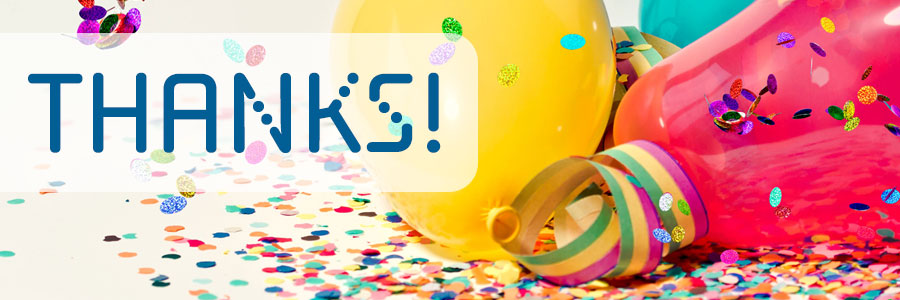
But now we would like to say “thank you” for 11 years together:
- the MediaTalk readers here on the blog,
- our our newsletter subscribers,
- the followers on Twitter and Facebook
- and of course our international community of authors, from the content creators at the ZBW itself to our authors on the other side of the world!
We look forward to the next 11 years and are excited to see where the journey will take us in terms of Open Science, innovation and digital infrastructure. And if anyone has an article idea, please send an email to .
View Comments

Horror Research Data Management: 4 Best Practice Examples for Successful Gamifications
by Elisa Rodenburg, Samuel Simango, Nadine Neute and Markus Herklotz Online...

